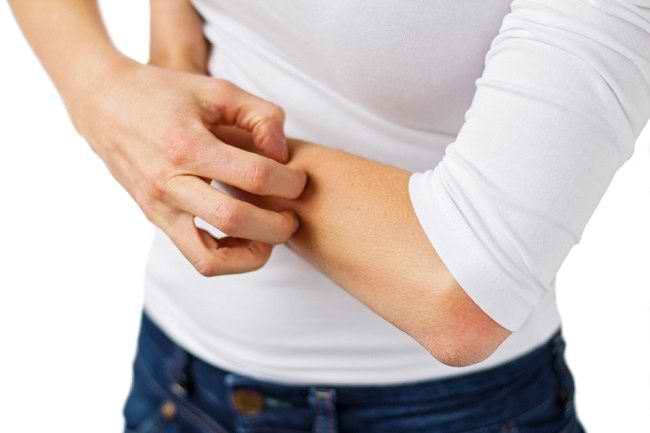Atopic dermatitis (AD) or eczema is the most common chronic inflammatory skin disease. This disease occurs in 20% of children and can persist into adulthood. Impaired skin barrier function is an essential factor in the process of AD. This disorder causes increased discharge from the skin, known as transepidermal water loss (TEWL) so the skin becomes drier and inflamed easily, leading to itching, which is the main symptom of AD.
It often affects the quality of life for people with AD, and it will trigger scratching, which will further damage the skin barrier and increase the inflammatory reaction, making the skin condition worse. This itch-scratching cycle is the main focus in treating AD.
According to the five pillars of guidelines for the management of AD in Asia-Pacific, improving skin barrier function, relieving inflammation and controlling itching are the main targets of treatment. Regular use of a moisturizer is the first thing in the five pillars. Moisturizer will add moisture and improve the skin’s barrier function. Ceramide, which is a natural component of the skin’s barrier structure, is one type of moisturizer that is effective.
Anti-itchy substances such as menthol and polidocanol to moisturizer are to increase its effectiveness in the treatment of AD. Both of these substances are still rarely studied in AD. Furthermore, we initiated to evaluate the benefits of ceramide, menthol, and polidocanol combination to improve skin barrier function, control itching and the severity of atopic dermatitis.
This study involved 30 patients aged 8-18 years who suffered from mild AD. Prior to the study, all patients had not used topical corticosteroids or tablets and did not use moisturizers for four weeks. All patients were subjected to an interview and clinical examination. The doctor severity of the disease using the scoring system Scoring Atopic Dermatitis assesses the(SCORAD)and measures the skin barrier function using a Tewameter instrument.
Besides, patients were also asked to subjectively assess the severity of the disease they felt using the Patient Eczema Scoring Time (PEST) scale and the intensity of itching using the Visual Analog Scalescale (VAS). Then the patient will be asked to use a cream containing ceramide, plus a gel containing menthol and polidocanol for four weeks. Re-evaluation is carried out at the 5th minute, the end of the first week, the end of the second week, and the end of the fourth week.
From the evaluation result, the severity of the disease and the itching felt by the patient began to improve for 5 minutes after application of the drug. Meanwhile, according to doctors’ assessment using SCORAD, the severity of the disease showed improvement since the end of the first week. The decreasing Tewameter value indicates the improved skin barrier function since the end of the second week of drug use. Furthermore, all evaluation parameters showed significant improvement compared to the initial assessment.
It can be concluded that the use of creams containing ceramide, menthol, and polidocanol can reduce itching and disease severity, as well as improve skin barrier function in patients with mild atopic dermatitis. (*)
Author: Rosita Sigit Prakoeswa
Link: https://www.jpad.com.pk/index.php/jpad/article/view/1288





